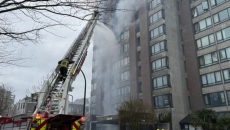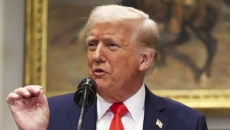The recent cap on international student admissions in Canada has sent ripples through universities nationwide, disrupting enrollment patterns, financial planning, and student experiences. For institutions that have had student populations woven with a multicultural fabric for years, the impact has brought about significant challenges spanning across multiple areas. Meanwhile, for students already navigating the complexities of studying in a foreign country, the uncertainty surrounding these policies has only added to their anxieties.

For institutions like Thompson Rivers University (TRU), which has built a reputation as a leader in international education for over four decades, the restrictions have been difficult. Justin Kohlman, interim associate vice president international at TRU, acknowledges the far-reaching effects of the cap, particularly on enrollment and budgeting. "Our international enrollment has declined, affecting program demand, financial planning, and budget planning," he explains. The sudden reduction in student numbers means universities must rethink their strategies, reassess their budgets, and adapt programs to remain sustainable.


Dr. Alan Davis, president and vice-chancellor of Kwantlen Polytechnic University (KPU), echoes similar sentiments, explaining that the cumulative uncertainty caused by several federal government changes since December 2023 has caused a significant fall in international student applications to Canada and KPU. That said, the institution has been focusing on providing clear communication to current students, incoming students, and partners abroad to ensure there is clarity of what the changes mean for new and continuing students and to ensure that they feel supported.

Undoubtedly, financial implications are an evident consequence of recent events. Dr. Davis reveals KPU’s approach: “The university is currently working towards setting a budget for the 2025-26 fiscal year that will reflect the decline in international enrolment. With fewer new and continuing international students, KPU will need to reduce its instructional costs in affected programs, as well as in other service areas that expanded in recent years to reflect student demand. KPU will work closely with its unions to ensure any affected employees are supported and due processes are followed.”
It is of no surprise that faculty and staff at universities are grappling with the uncertainty these restrictions bring. However, according to Kohlman, there is a strong commitment within the university to find solutions. "Faculty and staff recognize the challenges and are actively working together to adapt programs, refine student support services, and ensure TRU remains an accessible and globally engaged institution," he notes. While the adjustments may be difficult, there is also a clear determination to innovate and evolve in response to these changes. For university employees that are impacted, organizations are committed to providing clear communication and support.
The student cap has also raised questions about the long-term diversity of Canadian campuses. TRU, which currently hosts students from 109 countries, is actively working to ensure that it continues to attract a broad mix of learners despite the new restrictions. "We are constantly looking to diversify by expanding recruitment efforts into new markets, exploring alternative program delivery models, and providing additional support to ensure students from various backgrounds continue to see TRU as a welcoming and inclusive institution," Kohlman says.
Surely, a proactive approach is essential to sustaining the global perspective that many universities have spent decades cultivating. Dr. Davis highlights, “KPU is pursuing several initiatives to offset the decline in international student numbers, including new or amended programming, industry partnerships and adjusting recruitment strategies.” Seemingly, in the foreseeable future, educational institutions may require overall strategic shifts.

For students, however, the impact of the cap is far more immediate and personal. Parkhavi Thiruneelakantan, an international student, describes how the uncertainty surrounding these policies has affected both her and her peers. "The new student cap has definitely decreased the interest of students to move to Canada for higher studies. The ongoing changing of rules has created confusion and uncertainty about our futures," she says. This uncertainty extends beyond admissions—many students are struggling with the realities of finding work and housing, both of which have become increasingly scarce.

"The availability of jobs is so low that many of my peers have spent months trying to land a minimum-wage job," Thiruneelakantan shares. “This makes it very hard for current students to meet every day needs, which in turn affects mental health and also leads to poor academic performance.” The financial strain of high tuition fees, coupled with limited job opportunities, has placed international students in an incredibly precarious position.
In terms of whether she feels that universities and the government are doing enough to support international students, Thiruneelakantan does not hesitate. "Right now, I do not think the government is doing enough to support us. It looks more like they are trying to fix what they let happen," she says, referring to the influx of international students in recent years without adequate infrastructure to support them. Reflecting on her journey, she notes that she arrived in Canada in early 2021, during the pandemic, and surprisingly felt that there were more resources and opportunities available back then than there are now.
While universities like TRU and KPU are actively working to ease the transition for international students, Thiruneelakantan believes that more structured government support is necessary. "I appreciate universities and colleges that take initiative to ensure students’ well-being," she says, but she also argues that international students should be given more opportunities to prove their value to Canada. "By bringing programs for international students to participate in and giving them a chance to show that they are valuable to the country, we can all make the situation better for both parties," she suggests.
Kohlman echoes the sentiment that international students contribute immensely to their communities beyond just their tuition dollars. "International students have been a big part of our community for more than 40 years. They are proud of coming here, living here, and working here," he says. However, he warns that the government's recent changes will have an adverse effect not just on universities like TRU but also on the larger community and various companies. After all, the local economy and many businesses rely on international students as both consumers and employees.
Ultimately, the road ahead remains arguably uncertain, but one thing is clear: the conversation around international student policies in Canada is far from over. Universities are working hard to maintain their global appeal, while students are calling for better support and clearer pathways to success. If Canada hopes to continue attracting top talent from around the world, a balance must be struck between managing infrastructure challenges and ensuring that international students feel welcomed and supported—not just as temporary residents but as an integral part of the country’s future.






